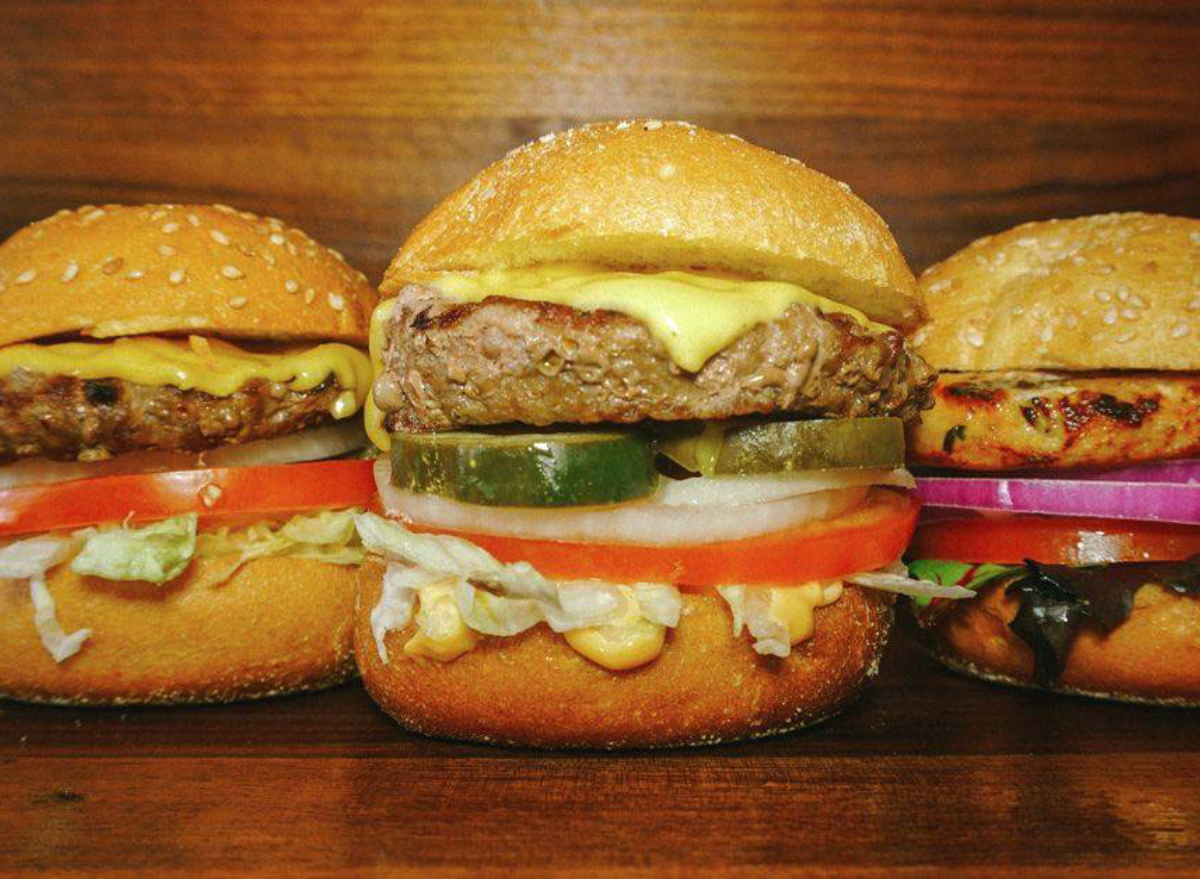This Collapsing Burger Chain Is Now Being Sued By the Government
The saga of the collapsing burger chain Burgerim has taken yet another turn. On Monday, the U.S. Attorney General filed a lawsuit against Burgerim and its founder Oren Loni in federal court in California, citing breaches of the Federal Trade Commission Act.
The lawsuit accuses Burgerim of misleading franchisees about the viability of its business. It claims the chain was defrauding and overselling to veterans and mostly inexperienced investors and then backed out of its promise to refund thousands of franchise fees worth $57 million in total.
For more fast-food news, check out 8 Worst Fast-Food Burgers to Stay Away From Right Now.
This isn't Burgerim's first run-in with the government. In February of last year, the company was ordered by the state of California to pay about $4 million in fines for violating state and federal franchising laws—and to refund its operators the millions owed in franchise fees.
For those unfamiliar with Burgerim's story: The chain is a California-based business that got its start in the late 2010s, selling slider-style burgers at its restaurants across the West Coast. The chain expanded rapidly between 2016 and 2019, growing to 200 stores and acquiring about 1,200 franchisees, making it "the fastest-growing emerging chain" in the U.S. in 2018.
Business appeared to be booming until 2019, when the company's founder, Oren Loni, fled to Israel, and Burgerim announced to its franchisees that it was considering a bankruptcy filing.
Subsequent reporting by Restaurant Business confirmed that Burgerim, in its early years of operation, was more akin to "a pyramid scheme" than a legitimate quick-service chain, with inexperienced franchisees being charged $50,000 to join the company—before being left to their own devices. Indeed, Burgerim has accused its founder, following his departure to Israel, of stealing the $57 million that the company owes its franchisees in refunds.
The federal government's involvement in the refund may be of limited use. The chain has admitted to its franchisees that it doesn't have enough money to fully refund the fees, promising little more than "pennies on the dollar."










